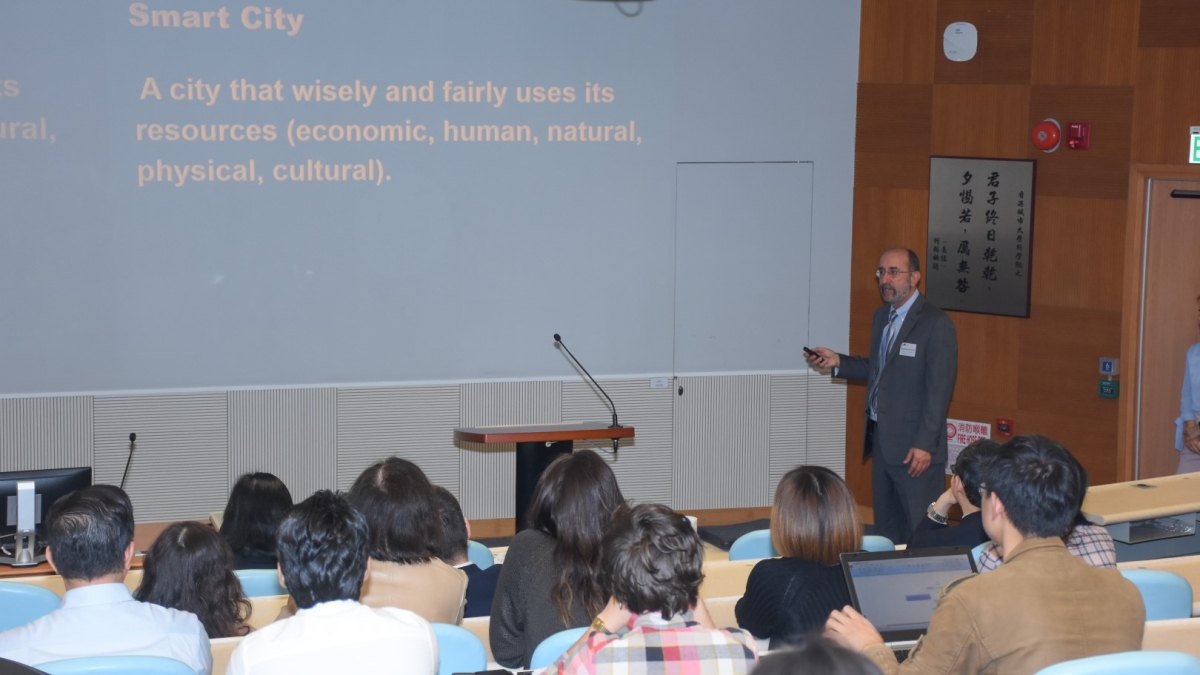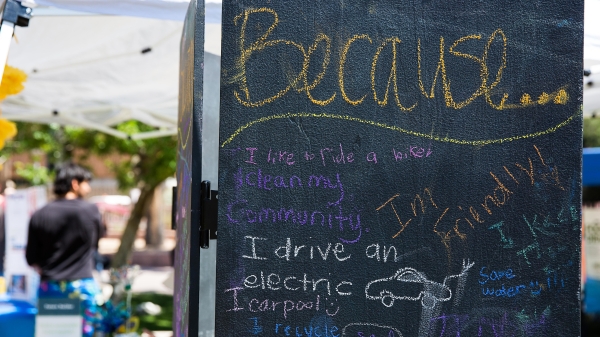ASU picked to advise Hong Kong on sustainability

Sustainability professor Rob Melnick presents his keynote address, "The Ubiquity of Urban Sustainability," at City University of Hong Kong. Photo courtesy City University of Hong Kong. Used with permission.
When City University of Hong Kong asked Rob Melnick to present a keynote address at its annual S-Day for Hong Kong sustainability summit, he recognized it as an opportunity for Arizona State University to present the Special Administrative Region of Hong Kong with innovations and solutions to sustainability challenges. This wasn’t ASU’s first such invitation — ASU President Michael Crow spoke at the same event in 2014.
It’s fair to say Melnick has a good grasp of the main issues surrounding sustainability in Hong Kong. For the past six years, he has taught study abroad courses in Hong Kong on urban sustainability, partnering first with CityU and more recently with Hong Kong University of Science and Technology, engaging more than 150 Hong Kong and ASU students. As part of their studies, participating students lived in Hong Kong and developed solutions to many of Hong Kong’s most daunting challenges.
Melnick, presidential professor of practice in ASU’s School of Sustainability, is also the university’s official representative to the Global Consortium for Sustainability Outcomes. His trip to Hong Kong included a signing ceremony affirming CityU’s membership in the Consortium, whose member universities collaborate to develop and implement solutions to urgent sustainability challenges in cities around the world.
Melnick’s presentation at the CityU event, titled “The Ubiquity of Urban Sustainability,” focused on a Global Consortium founding principle — that effective solutions to urban social and environmental problems developed in one city can and should be adapted and applied in other cities, notwithstanding different cultures and capacities.
“As the world continues to urbanize, sustainability problems will markedly increase — greenhouse gas emissions, demand on limited supplies of water, housing affordability, energy use,” said Melnick. “As institutions of teaching and innovation, universities need to develop viable solutions to these problems and put them in the hands of the people who can most directly impact them.
“The Global Consortium for Sustainability Outcomes is an international network of universities that are, in fact, rising to this exact challenge.”
More Environment and sustainability

Colorado River becomes an outdoor classroom for these middle school students
Griffin Freburg doesn’t usually look forward to science class. But on a sunny day in March, the eighth grader changed his tune.…

Earth Day celebrations focus on making our planet a priority
On April 22, Earth Day is celebrated across the country and in nearly 193 countries around the world. Arizona State University…

ASU scientist studies how bans, regulations on food technology affect consumer acceptance, perceptions
How do people process scientific developments with outside influences, warnings, biases and others’ opinions filtering in? That…